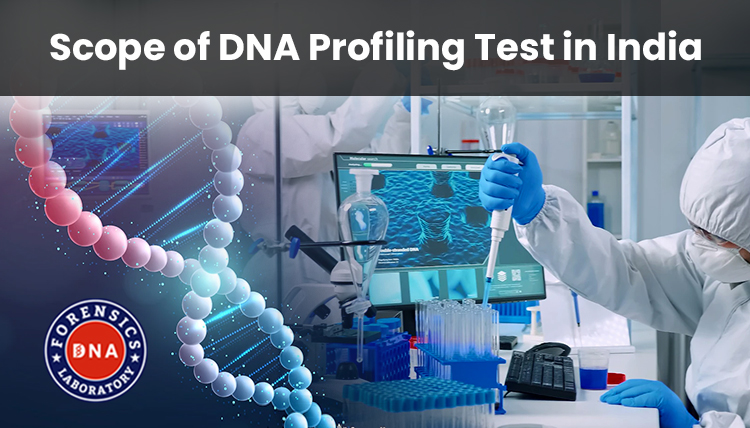DNA stands for Deoxyribonucleic acid. It encodes genetic information necessary for organisms’ development and functioning. Among eukaryotes (humans, animals, and plants), DNA is stored in the nucleus and in specific organelles (such as mitochondria and chloroplasts). In contrast, prokaryotes (bacteria) store it in their cytoplasm. Fingerprinting history began with Sir Alec Jeffreys’ discovery of the minisatellite DNA in 1984. Every human’s genetic makeup can be traced through this double helix model and can be used to determine their ethnicity and ancestry. While DNA has many real-world applications, a striking area of importance is its usefulness for an individual’s profiling/identification. The process involved is known as DNA fingerprinting or DNA profiling. DNA profiling or fingerprinting is a technique used to collect people’s genetic information for parentage testing, criminal or forensic investigations.
Methods Used for DNA Profiling
How does DNA profiling work? Our chromosomes contain repeating sequences that function as genetic markers. The number of repetitions and positions differs from person to person at each marker. This is so because we inherit half of the DNA from the mother and another from the father. To perform DNA profiling/fingerprint, researchers need a biological sample. It can be a buccal swab, hair, saliva, blood sample, or other available tissue.
There are several methods for DNA Profiling tests, which are:
- Restriction Fragment Length Polymorphism (RFLP) test is the oldest and the most time-consuming method, which provides great results, but can’t be used for parentage testing. This method used restriction enzymes to cut DNA into smaller fragments.
- The discovery of STRs (Short Tandem Repeats) ushered in a new era in DNA fingerprinting. They are DNA sequences that are only two to four nucleotide pairs long and generate highly unique patterns akin to minisatellite DNA. It is the most commonly used DNA profiling method for relationship testing and forensic identification.
- With advancements in technology, DNA fingerprinting evolved. The invention of PCR (polymerase chain reaction) technology increased the speed of the DNA fingerprinting process. It creates thousands of copies of sequences within a limited time.
Applications of DNA Profiling
Listed below are some of the applications of DNA Profiling in India:
- Peace of Mind DNA Profiling Test for Relationship Identification: A test used to establish paternity, maternity, sibling-ship, or grandparentage between two or more people.
- Organ Transplant DNA Profiling Test: DNA Profiling test is helpful in the case of organ transplantation. A living organ donor must provide proof of genetic kinship with the organ recipient, as required by the Transplantation of Human Organs Act, 2014.
- DNA Profiling Test for Immigration: Visas applications are more likely to be rejected in immigration cases when the relationship between the beneficiary & the petitioner becomes questionable. In such cases, getting an Immigration DNA Test beforehand helps avoid refusals.
- Ancestry DNA Test: If you are interested in digging out the ancestral past that has always been unknown to you, Ancestry DNA Profiling Test can help. They offer insight into our ancestors’ amazing journey thousands of years ago. The ancestry test can be done for different types of information, like-
- Paternal Lineage DNA Ancestry Test
- Maternal Lineage DNA Ancestry Test
- GPS Origins DNA Ancestry Test
- DNA Profiling for Legal Cases: The DNA profiling test is also crucial in legal matters, including relationship disputes, child custody, and property/will inheritance. The DNA profile is the only authentic way to establish an individual’s identity.
Scope of DNA Profiling Tests
The use of DNA profiling tests is currently limited. It is often due to limited knowledge among the common people. Moreover, DNA testing for different purposes often requires a reference sample, for example, in the case of forensic investigations. This often makes identifying the suspect harder.
The scope of the DNA Profiling test, however, is great. Technological advancements have made whole genome sequencing possible. Furthermore, the Indian government is proceeding towards compiling a DNA database for the country, which will help, the police, other law enforcement, and investigative agencies greatly. Once this happens, finding out the convict will be far easier.
Another potential and increasingly popular application of DNA testing is the prediction of genetic and other diseases in a person. DNA profiling test finds its application in:
- Establishing relationships
- Organ transplant
- Immigration purposes
- Identification of a missing child & mutilated body
- Identification of criminals in cases of murder, rape, & assassination
Data from DNA profiling technology is considered unbiased, unfabricated, and 99.9% accurate.
DNA Forensics Laboratory – For Accurate DNA Profiling Tests in India
DNA Forensics Laboratory Pvt. Ltd. is among India’s leading companies for accurate and reliable DNA Profiling Tests at competitive prices. With an excellent track record of providing accredited DNA testing services & thousands of satisfied customers, we are the most trusted DNA testing labs for DNA Profiling.
Other key factors that make us desirable in the field are:
- Local collection centres across India and other countries
- Highly qualified and experienced technical staff
- Latest and advanced methodologies for the test
- Providing NABL-accredited Organ Transplant DNA Test with Form-5 in India
- Multiple sample collection options
- Availability of DNA test kits online
- Fastest turnaround time within 4-5 working days
- Next or the Same Day reporting options (T&C Applied)
Call us at +91 8010177771 or WhatsApp at +91 9266615552 to know more or book your DNA Profiling Test in India.






